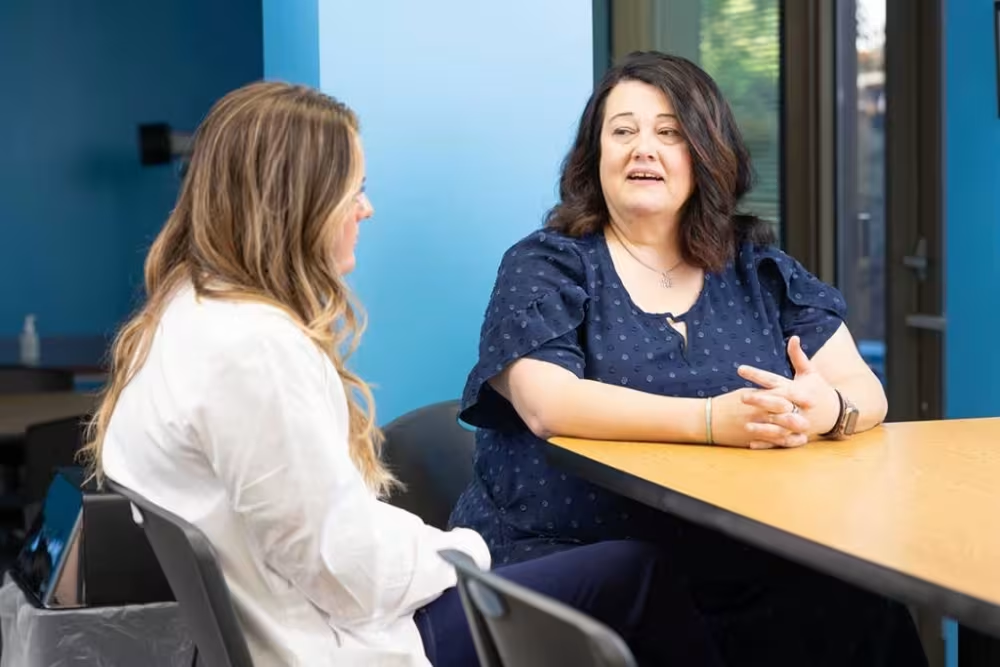Autonomy in Nursing and Why It Matters
Each blog post is dated and contains accurate information as of that date. Certain information may have changed since the blog post publication date. If you would like to confirm the current accuracy of blog information, please visit our ABSN program overview page or contact us at 866-890-9467.
Autonomy in nursing is the independent actions nurses take to provide care and meet patients’ needs, as well as the influence they have over organizational policy and procedures. This is shown in practice as the emergency decisions nurses make, suggestions regarding workplace policies, and many other grand and small ways.

Your responsibilities as a nurse can vary depending on degree level and specialty. Still, all registered nurses (RNs) command a level of autonomy to meet patients’ needs, optimize care and improve organizational policies.
At Xavier University, the Accelerated Bachelor of Science in Nursing (ABSN) program offers a well-rounded curriculum to graduate confident nurses ready to exert autonomy in healthcare. Through a combination of online coursework, in-person skills and simulation labs and clinical rotations, you can earn your nursing degree in as few as 16 months.
As you enter the nursing field, what will it mean to have autonomy in nursing, and how can you work as an autonomous nurse? Let’s find out what this concept means to your career.

Considering switching careers? Learn more about second-degree nursing programs and how they cater to career changers.
What Does Autonomy in Nursing Mean?
Autonomous nursing refers to an RN’s discretion to use their knowledge and experience to independently determine the best course of action in patient care situations.
In numerous parts of their daily responsibilities, nurses must use their critical thinking, education and skills to operate within their scope of practice without having to ask permission. Autonomy in nursing is crucial for patients’ safety and improving the healthcare industry.
Examples of Autonomy in Nursing
While autonomy in nursing is restricted to its scope of practice, registered nurses still operate with two types: clinical autonomy and practice autonomy.
Nurses exercise clinical autonomy when they use their independent judgment to make patient care decisions. Alternatively, practice autonomy is the influence nurses assert over policy and operations in the workplace.
1. Patient Assessments Symptoms
Registered nurses perform a nursing assessment at least once each shift , but they may need to reassess the patient if they note a change in the patient’s condition.
Early detection and intervention in patients’ symptom progression or deteriorating condition could be the key to recovery. So, nurses may need to act autonomously to retake assess a patient and take appropriate action, this may include administering treatments or medications or consulting with other healthcare providers on the team.

2. Administering PRN Medications
Pro re nata or PRN medications are drugs administered as needed to treat a specific symptom or situation. Autonomy in nursing is practiced when RNs deliver medications at unscheduled times, treating unanticipated symptoms or varying pain levels.
Throughout their career, nurses must use their clinical judgment to decide when it is beneficial and safe to administer PRN medications.
3. Making Emergency Decisions
Healthcare is a fast-paced industry, and nurses frequently must act without consulting a healthcare team, especially in emergency rooms and critical care units. Decisions made in emergencies, such as performing CPR, are another example of RNs autonomously nursing.
4. Following the Nursing Code of Ethics
Every nurse must adhere to a code of ethics and its four principles: autonomy, beneficence, justice, and nonmaleficence. As such, it is crucial that nurses act ethically and speak up when their organization's policies or actions contradict the nursing code of ethics.
5. Educating Patients and Caregivers
Nurses are often a more accessible resource than physicians or specialists, so they may be tasked with educating patients and caregivers. A thorough explanation of diagnoses, medications and treatments can help ease any concerns and resolve lingering confusion on the part of the patient or their loved ones.

6. Delegating Care Tasks
Among the different levels of nursing, RNs have the broadest scope of practice, with numerous duties overlapping with other nursing roles. Acting as autonomous nurses, RNs can delegate tasks that fall within their scope of practice to other healthcare team members, such as licensed practical nurses (LPNs) and certified nursing assistants (CNAs).
The act of delegation allows nurses to prioritize more urgent tasks without sacrificing quality of care. Learning how to properly delegate tasks is vital in nursing, especially for nursing leaders.
7. Assisting Healthcare Teams
Allowing nurses to assist other members of the healthcare team grows bonds between colleagues and enhances patient care. Teams with more collaboration experience will have an easier time communicating and treating patients.
Allowing healthcare professionals to collaborate and help each other builds a more productive and healthier environment.

8. Collaborating On Procedure Changes
Healthcare administrations should not overlook nurses’ clinical expertise regarding policy changes. RNs are on the front lines of patient care and will see the impact of policy changes first. Organizations that value the autonomy of nurses foster supportive environments and allow nurses to have input on policies to improve patient care.
9. Suggesting Organizational Improvements
Autonomy in nursing extends beyond care decisions and can also influence administrative operations. For instance, nurses handle certain supplies daily and may have a more accurate understanding of which brand or features of a product are most appropriate for their patient population. Administrative staff can utilize RN expertise by listening when their organization’s nurses suggest improvements to the supply needs of the healthcare unit. This kind of input is essential to provide the best care for patients.
10. Asserting Control Over Work Conditions
Depending on their work environment and nursing role, many nurses can assert autonomy over their working hours. Especially in hospitals and organizations that use a shift-based schedule, nurses may have the flexibility to indicate their preference for traditional or alternative shifts.

Xavier University offers two learning sites in Cleveland and Columbus, Ohio. Find out what to know before relocating for an accelerated nursing program in Ohio.
Enter Your Nursing Career Confidently with Xavier University
Xavier’s Jesuit values of compassion and service to others are embedded in all levels of the ABSN program, starting with admissions. Through every step of the admissions process, your admissions adviser will be available to answer questions and keep you on track to complete the necessary prerequisites and eligibility requirements before your desired start date. With three start dates in January, May and August, and no waitlist, you can begin your nursing degree sooner than you think.
Contact the dedicated admissions advisers at Xavier University to determine eligibility and begin your application.
